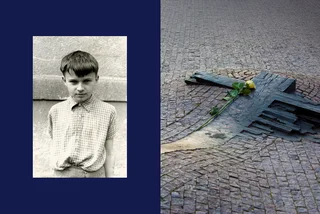If you find yourself living in an apartment and missing the chance to dig around in the soil, there are some opportunities to get your hands dirty and perhaps grow something fresh as well.
Allotment Garden
If you desperately need a garden but can’t afford or commit to buying a house, you might want to consider an allotment garden. The tradition of tending a small plot separated from one’s abode, while having roots back to the 19th century, became more widespread during the communist regime. Today you will find them dotted in the outskirts of the city and beyond, characterized by a well-cared for lawn, fruit trees, flower beds, a small shed, and often a grill for a cookout, all protected by a fence. In Prague alone there are about 120 garden settlements, each with anywhere from a dozen to a couple of hundred members.
Usually, these garden plots are run by an association which then rents them out. The main one is the Czech Gardener´s’ Association (Český zahrádkářský svaz) or ČZS. It brings together about 170,000 gardeners from around the country, offering them advice and assistance from how to best raise certain plants, legal information and tax advice. These services are for members only. Another service it offers both for members and at times the public is the use of its juicing works. Further information can be found under ‘Moštárny, pálenice’ (Czech only).
If you choose to go it alone then start checking the real estate websites. A search using the key words “pronájem zahrad” (renting of gardens) will give you a few links. An average rental price for a plot is hard to estimate given that size, location and utilities will influence the price. Things to look out for if the website is not in English are whether the rent is annual (roční) or monthly (měsíční) and if the price is for the whole area (objekt) or square meters.
Volunteering on a Farm
Perhaps buying or renting a plot is too much of a commitment. In that case, you might want to consider spending some time on a farm. This website Bio-Life has a list of eco-farms. If you go through the list you will find a place where you´d be welcome to help. Look for the hands icon at the bottom left of the screen. About 14 farms offer the possibility to help and a few more the chance to stay if a lungful of farm fresh air is as close to nature as you want. Some of the farms which offer an opportunity to muck in the earth are Chadimův mlýn in Vysočina, which raises beef cattle and Ekofarma Šumava in the Plzeň region, where you will find poultry, rabbits and fruit trees. For those more inclined toward the vegetable kingdom, Ekofarma Budkov located in South Bohemia might be more what you’re looking for.
For those who want to combine their urge to garden with some training WWOOFing may offer the right opportunity. In case you’re unaware, WWOOF stands for World Wide Opportunities on Organic Farms. In exchange for time and effort, participants get an opportunity to stay on the farm, sample its produce and learn something about organic farming. The network of farms reaches to the Czech Republic too. More than 20 farms are listed in this country with a couple in almost all regions of the Czech Republic.
The only requirement to work on these farms is that you are a member of WWOOF. Membership is 250 CZK a year, or 350 CZK for a couple. Once you become a member you then get a list of farms. The type of work you do and for how long, along with the length of stay all depends on your agreement with the farmer. For short stays the organization recommends bringing your own sleeping bag. For longer stays they suggest something more could be arranged. They also recommend that you bring personal; items such as a towel and tooth brush.
Don’t Forget Your Balcony
With a little imagination, your balcony can be more than a place where smoking friends and black birds gather. It can give you a chance to do some gardening without the cost or traveling. Planter boxes and pots are a place to start but if you need some more inspiration or suggestions on what to plant here are few titles which may be useful. Starting with the interior is Houseplants: Indoor Plants Anyone Can Grow by Paul Williams. As the title suggests, the book has tips for plants for your home and how to care for them. Gay Search’s Gardening without a Garden advises how to combine plants to achieve the best effects. John Brookes’ simply titled Small Gardens offers more ambitious designs but is more suitable for people with tiny yards. And if this all seems too much you can of course enjoy the wonderful photos in every book.
Do you garden locally or have you experience volunteering on a farm? Share your experiences below!












 Reading time: 4 minutes
Reading time: 4 minutes 


















